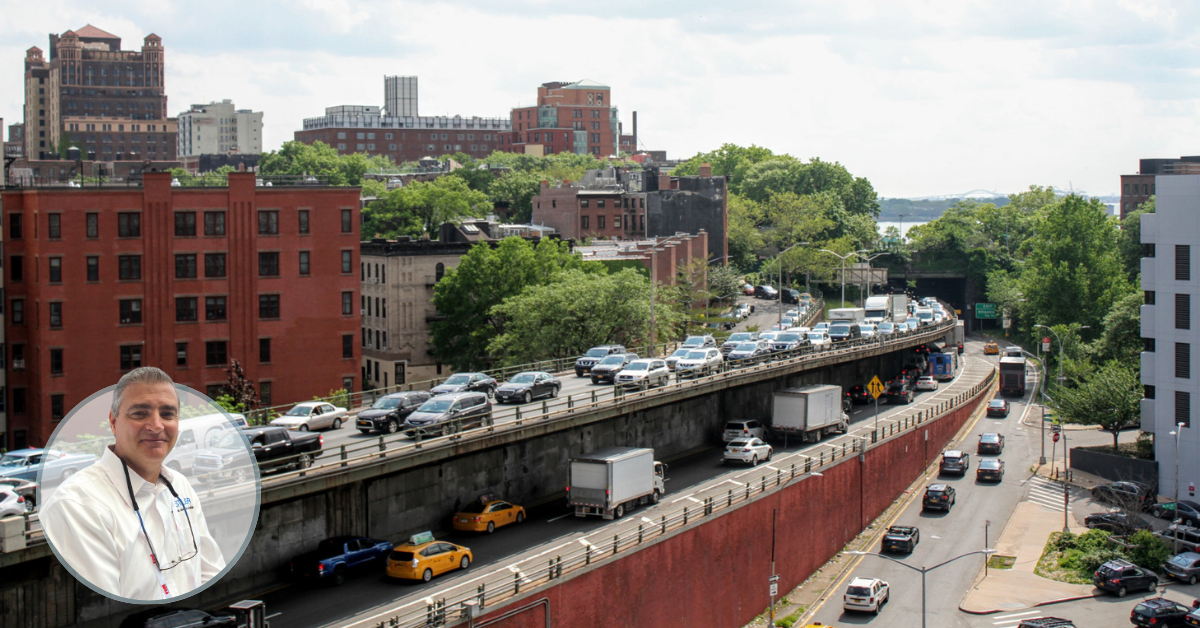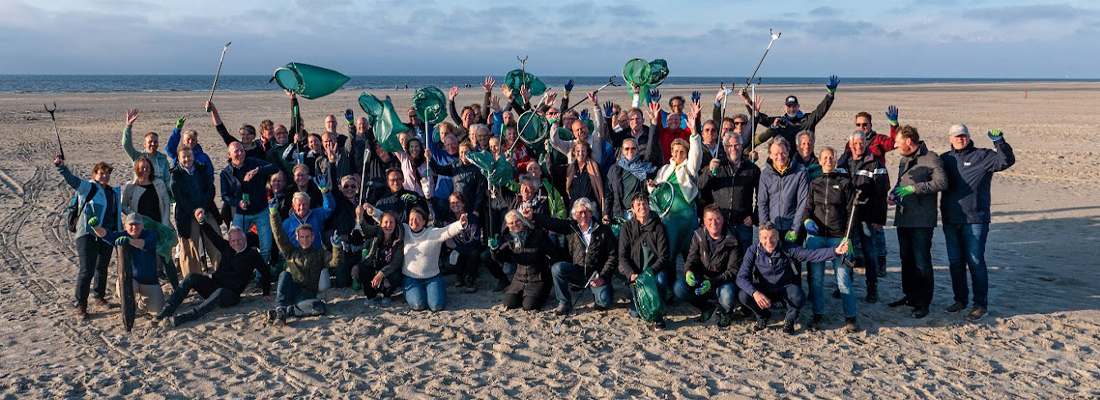For anyone watching 80 casually dressed people disembark from five ships onto the shores of Terschelling island off the northern coast of the Netherlands on 16 May, they would have been forgiven for thinking they were watching the intro to a new series of the Dutch version of the TV game show Survivor. Or, perhaps more realistically, a wedding party. This, of course, was not the case.
This was a gathering of the 80 most knowledgeable people in the Dutch road infrastructure sector and they were arriving at the start of an intense five-day workshop, in part created and driven by the Rijkswaterstaat (RWS), designed to address and potentially divert the country’s burgeoning infrastructure crisis (a crisis being felt all across Europe, if not the majority of the developed world).
Intertraffic spoke with three of the event’s driving forces and protagonists to find out how the workshop was structured and, crucially, how the targets and goals that were set out will be implemented.
Benny Nieswaag, Project and Programme Manager at the Rijkswaterstaat (Ministry of Transport, Public Works and Water Management); TNO’s Managing Director of Unit Buildings, Infrastructure and Maritime, Dr Machteld de Kroon; and Pieter Litjens, Director at CROW, the knowledge institute for infrastructure, public space and mobility (and chairman of the Intertraffic Awards Jury) take us behind the scenes to describe the week’s events through their own eyes and to reveal how the experts see the future of road infrastructure.
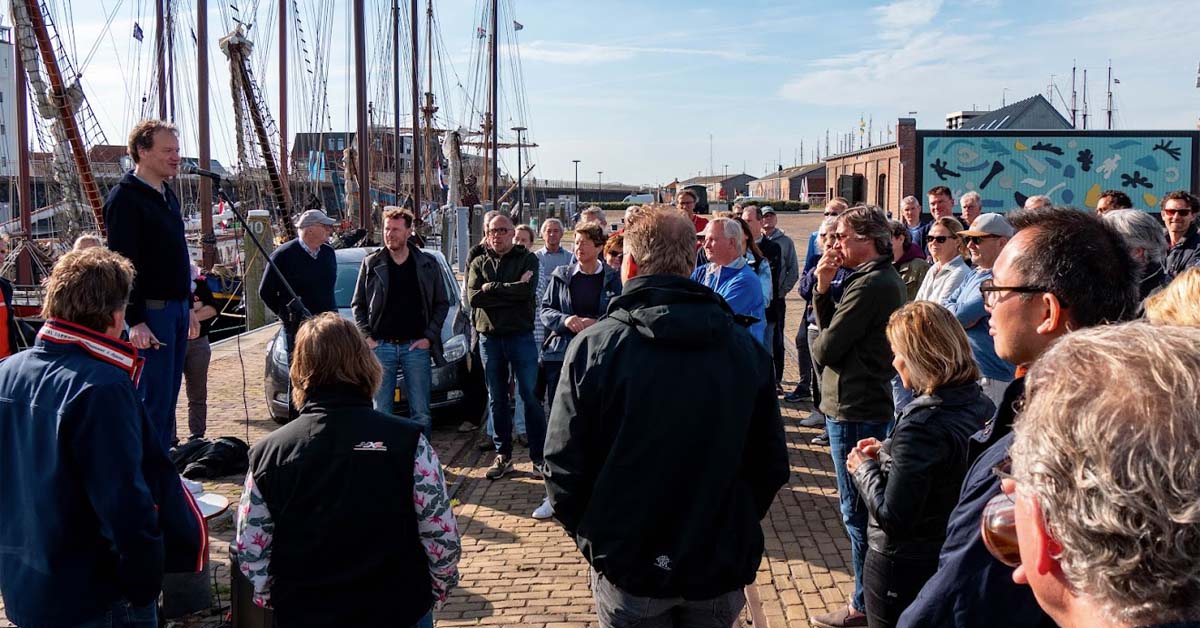
Pieter Litjens, CROW
We gathered 80 people from the infrastructure sector, contractors, public parties, scientific organisations, knowledge institutes, consultants, all the parties working in the infrastructure sector, because we realise that although in the Netherlands we have a fairly well maintained infrastructure we also know that below the surface, it's not as pretty as it seems.
There's a very big challenge for us in coming decades, when it comes to restoring, renovating and maintaining the current infrastructure. It's not only about maintaining or renovating, it's also a matter of how to how to achieve our goals when it comes to sustainability. When it comes to climate change, water adaptation, heat, all the issues we're facing right now worldwide, we know that it's a task for us, a responsibility for us, to incorporate the already difficult challenge of maintaining and renovating our infrastructure. What we realised is that we not only have the need to do it two times better, smarter, more efficient and more sustainably than we did in the last few decades, we want to reach our goals for the 2030 climate agreement and 2050. We also want to reach goals we haven't mentioned yet, because we're talking about climate change right now. But we should also talk about insulation.
"There's a very big challenge for us in coming decades, when it comes to restoring, renovating and maintaining the current infrastructure"
That is an even bigger crisis looming behind the climate crisis. And behind the commodity crisis we have a biodiversity crisis. We know that the challenge is enormous, so when we talk about reaching our goals it’s not enough to do it twice as fast and twice as efficient any more. We have to do everything at least 10 or perhaps 20 times as smart and sustainable, and 20 times as efficiently because it saves money.
However, there's one thing lacking in the future and that is the money. There's always a shortage, you always have less budget than the plans you want to do. But we also are facing a shortage in the labour market right now. I don't know what the situation in other European countries is, but we certainly have it in the Netherlands and it takes a lot of effort to find enough capable people.
This drove us to build a five-day infrastructure workshop and for it to take place on an island as we didn’t want people just to fly in for only one day.
It was a process of getting everyone together and getting to know each other. On day three we faced a challenge when everybody got a little bit annoyed with each other because we’d talked about the difficulties. We talked about the need come up with solutions but it's not that easy. There are no silver bullets to solve the problems we're facing. So everybody got a bit irritated on Wednesday but we did that on purpose because when you go through “valley of death” that everyone experiences in the middle of an intense five-day summit it means that you're able to climb up and reach new heights with each other.
One of the things that struck me the most was a letter written by one of the participants, Marten Klein, deputy director of the department of civil engineering of the city of Amsterdam, to his 18-year old daughter. She is studying at the Technical University of Delft, where he studied, and they share the same passions, same goals, same dreams, and, like many of her peers, that 18-year old girl is really concerned about the future of her generation and coming generations. She sent him a WhatsApp message on the first day that read “Dad, did you already save the world?”
He said that while you could regard it as a joke, she was deadly serious. The only answer he could give was ‘not yet’, so he decided to write a letter to her and in that letter he stipulated that we hadn't come up with a solution yet, because we were too busy with our daily business but we were working on it. We have permission to reproduce the letter – I hope you take the time to read it.
"A delegate’s daughter sent him a WhatsApp message on the first day that read “Dad, did you already save the world?” He said that while you could regard it as a joke, she was deadly serious. The only answer he could give was ‘not yet’"
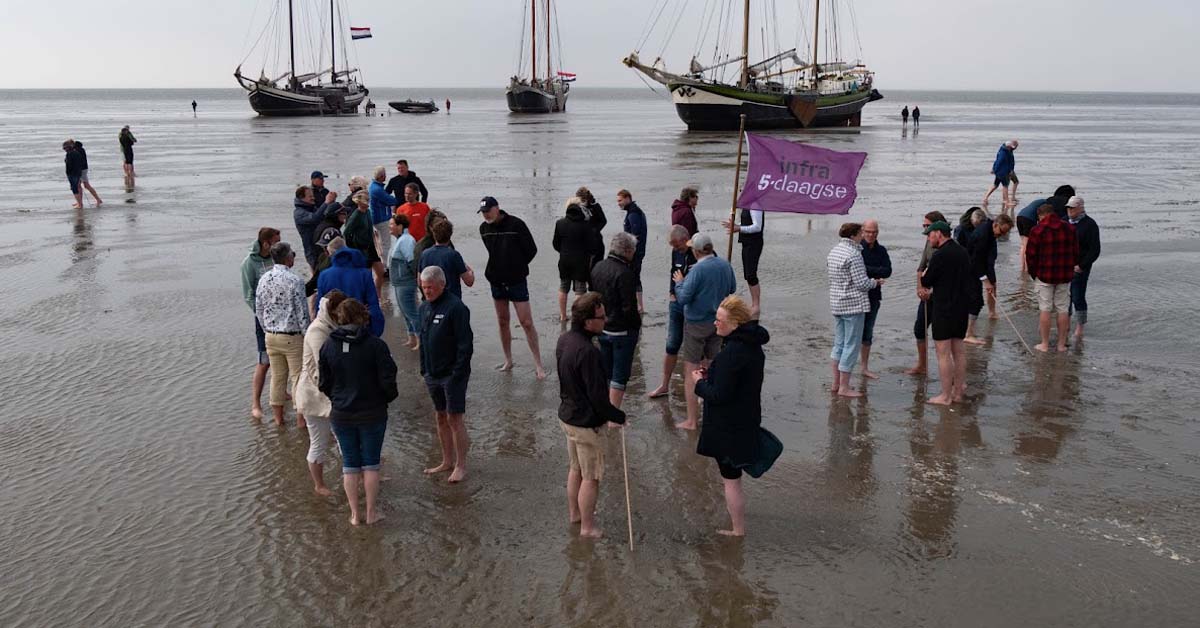
We all know the meaning of World Overshoot Day. In the Netherlands this year we reached it on the fourth of April, I think. This just isn't sustainable. Not for now, not for the near future. Certainly not for the future to come. In his letter he said that we do use too much - more than our generation is entitled to and far more than our country is entitled to. We all feel the responsibility to change that.
For me one of the main points of awareness is that not only in the coming years, but the coming weeks and months, we should ask ourselves this question every time we have to make a decision: Does this really contribute to a sustainable world? When the answer is no, don't do it.
A lot of participants at the Workshop work in public service that means politically driven surroundings. When you live and work in political surrounding a ratio is not the only way you measure decisions. We decided to go back to work and to try to convince as many people as possible to have the same awareness, and ask that same question of ourselves? There were 80 of us there so if we influence 10 colleagues each and they also influence 10 colleagues each, we reach 8000 people and then you can talk about a movement.
The most important thing that really struck me was the way that although everybody was unique, everybody felt the same way, even though everyone is coming from different backgrounds with different interests.
We need a call to action but one that is not only about the money we need, it's also about more cooperation as it’s clear that a lot of parties are dealing with the same challenges, but they are doing it separately. It's not always about competition.
"We need a call to action but one that is not only about the money we need, it's also about more cooperation as it’s clear that a lot of parties are dealing with the same challenges"
I think the willingness to cooperate is very strong – that was evident on Terschelling. Yet we should also take into account that people are talking about their own business, and their reasons. What I have noticed in the last couple of years is that a lot of building companies try to convince the public authority that the national government should put all their projects into one portfolio. Spread it out over a couple of years to create a steady flow of projects - not only in terms of Euros but also in personnel and make them with a conglomerate of the five, six or seven largest companies in the sector. They can draw up an agreement that they all have their share in the next five years or so. This sounds great, of course, but it doesn't sit very well with European contracting laws. The willingness of those building companies might be there, but the question is can the same be said of the public governments and public authorities who also believe that the willingness to cooperate is genuine, and for the government common good? Or do they suspect that there is an individual interest of all the companies themselves? I think those images are still very much alive and that's why it was also was good to be there together and to learn about each other's ambitions and motivation.
Benny Nieswaag, Rijkswaterstaat
The transition we need is rather fundamental. We are at the of end of a lifetime of system use and when we want to point to the changes we need to make now, it’s clear that we have to do something together.
When you look at the current road infrastructure the first conclusion must be that you can't change anything from your own perspective, that's impossible. So you need to work together with different parties so as far as the Workshop is concerned I think it was very good that the early adopters of the infrastructure industry were there.
"When you look at the current road infrastructure the first conclusion must be that you can't change anything from your own perspective, that's impossible"
This involves the whole infrastructure sector in the Netherlands. It doesn't matter if you are talking about rail or highways or waterways, it's all in the same situation, and we have to make a transition. We have a very big challenge ahead of us in the renewal of our infrastructure. We built a lot in the ‘50s, ‘60s and ‘70s and now that infrastructure has come to the end of its lifetime so we have to think about how we renew or reconstruct or whatever. We have to look at what our goals are when we try to do so.
There’s a huge possibility to make the transition and this was sort of a starting point in the commitment, that we all have to work together, share our failures, share our capacities, share our demands, in order to be in the transition. So how do we start this? It’s imperative that we have to work together on the demands and on the goals. So we need to determine what we are aiming for, but also we have to find out a workaround in how we communicate with each other, and how we make it an interesting sector for the youth - how do we make it an interesting career prospect for young people to follow? There’s a shortage of available people in the infrastructure sector.
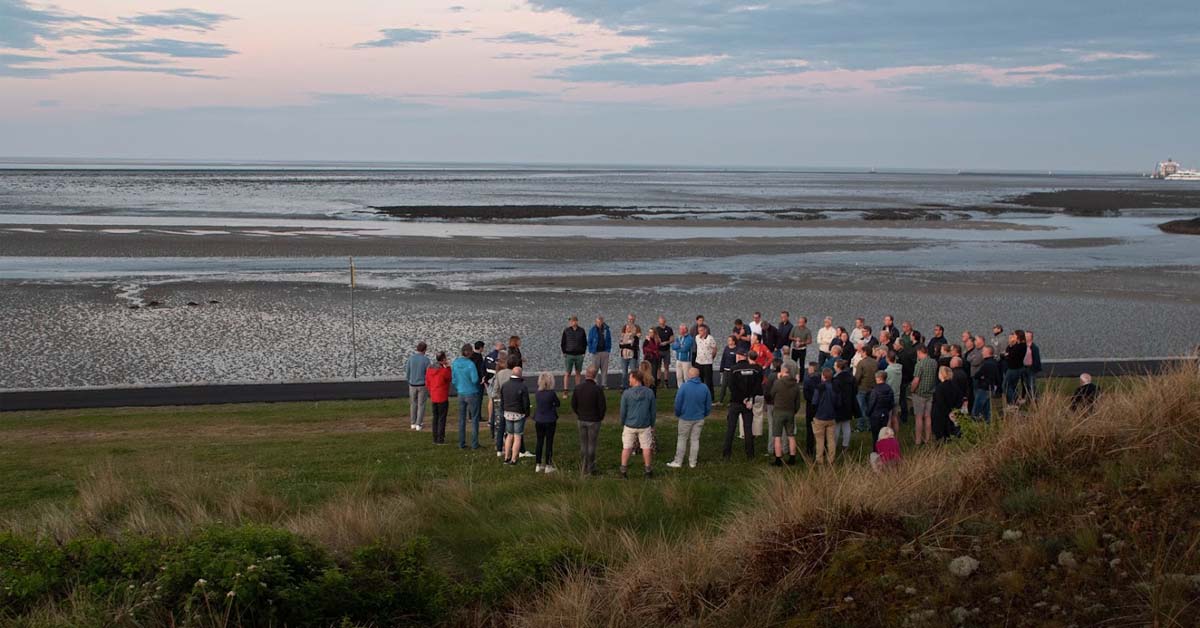
The first thing you learn is when you don't know the people who you're working with well enough you won't be successful, you have to understand that completely. So it's also a huge investment to learn if you are good enough. This is why we held the Workshop on an island for an entire week – a week is a huge investment of time as everyone who attended, everyone that was involved, are busy people. It was a big commitment.
"There was a reason for holding the Workshop on an island for an entire week – a week is a huge investment of time as everyone who attended, everyone that was involved, are busy people. It was a big commitment."
There was an original network of five people at the planning stage of Infra 5-daagse. Those five people got together and said decided on personal invitations to what was considered as the early adapters of the infrastructure, so we made a mix of people who are involved in formal changing, and also people who are informal leaders in transition.
The plan was to inform our minister on the Thursday what we had to show after four days of investing our time. I think I can say that all the people who were there were feeling the difficulty of these times, experiencing the difficulties on a daily basis. Personally I felt the urge of wanting to have a transformation and a transition, and also have ideas about it. I'm in a market platform that evolves and in which I facilitate the board members of the building industry and engineering firms that have been working together for five years.
So we thought through how we can advise in the transition discussions because it isn't a content problem, we have all kinds of technical ideas, but the way we work together, the way we work in general, will lead to success. If we continue to do it like we did, then we will not be successful in our goals. This is why it’s so important to engage and attract the younger generation into this sector. There was only one person out of the 80 who was 25 or 26.
We spent the first night on the ships but the first day was about how do we get to know each other by working together? No differences, we all look the same in our casual clothes. When we disembarked we had a barbecue on the wet sand as a kind of initiative to get to know each other and also help create the atmosphere that we are one big team.
The second day was in the hotel in Terschelling and it was about the discomfort of the day. It was unpleasant, in a way, because we are not successful in how we do things – that was right there on the table! The question was: what is giving us these feelings of discomfort? What is the reason for it? Why is our sector not interesting for young people? Why do we have not enough people to face the challenges? Why do things not work together efficiently within the government? With the market we have, with the knowledge institutes we have, are we all doing our best? If so, why are we not effective? And, for me, one of the bigger questions is how do we start a movement?
"With the market we have, with the knowledge institutes we have, are we all doing our best? If so, why are we not effective? And, for me, one of the bigger questions is how do we start a movement?"
By a movement, I don’t just mean the 80 people at the Workshop, I mean within the whole sector? How do we invite them to be part of this movement? We want to have a combination of people who are going to have a relationship with each other. But we want to invite others to be a part of the transition.
The difficultly here is how do we focus on short-term value? And how do we make a business case out of it so that the Netherlands’ public feels that all the infrastructure is adding something: liveability or energy reduction or CO2 reduction, or nitrogen reduction. We are part of that transition, and we are accountable for being part of that and having goals in it.
Another main discussion topic was how do we solve inefficiencies. Again we see a lot of inefficiencies due to not working together enough. Solving inefficiencies can also lead to optimization and getting time enough to focus on the transition part, so inefficiency is helping to come to the transition.
Finally, we looked at how we build up the knowledge we need for the transition, because the demands will change, the expectation will change, the goals will change, the way we work together will change. We can't rely on that yesterday, we have to find out new ways of working together and for that we need knowledge. We have to learn from each other very quickly and ensure that a ‘knowledge event’ in one place at one moment in time should be instantly available in another place at the same time in order to help each other to get to where we need to go.
On the fourth and the fifth days we worked out what are the first initiatives we will take to reach the action framework we defined previously.
The first action framework is Social Security. The second is the overview part that is focused on knowledge and talent development. So how do we, within the infrastructure sector and family, give a role to the knowledge institutes? How do we share that? And how do we ensure that innovating every day becomes an everyday activity as a way changing rapidly in order to fulfil the needs of today and tomorrow?
The third one is how do we save the planet by working better and faster so our liveability is on the line? The third one is very practical, but it’s about working together as a government and working together with the market and analysis tools.
Another question that we covered extensively was how do we renew our way of working so that it's more integrated, more coherent and is based on shared knowledge with digital foundations. How do we use the capacity we have and knowledge we have in a more robust way? How do we remain focused on our transition efforts so that we can be accountable for the quality of the cooperation at a central point?
The citizens of this country don't know what renewal of infrastructure means for them. They don't have a clue. The deadline, however, they all know. So our plan was that we asked all 82 infrastructure experts in the room to name a bridge, or a viaduct or tunnel in which they think it's urgent to do something and we’ll start there. What does it mean to the public if a certain object is not functioning? Or what does it mean for the energy transition or for CO2 reduction?
We have given the public and the politicians enough insight as to the status of the current infrastructure and social value of it in terms of what we try to achieve, so that our goal is sustainable and durable. We have to engage people - we will try to involve the interest of people in the sector in working with us to get young people interested. That’s the goal.
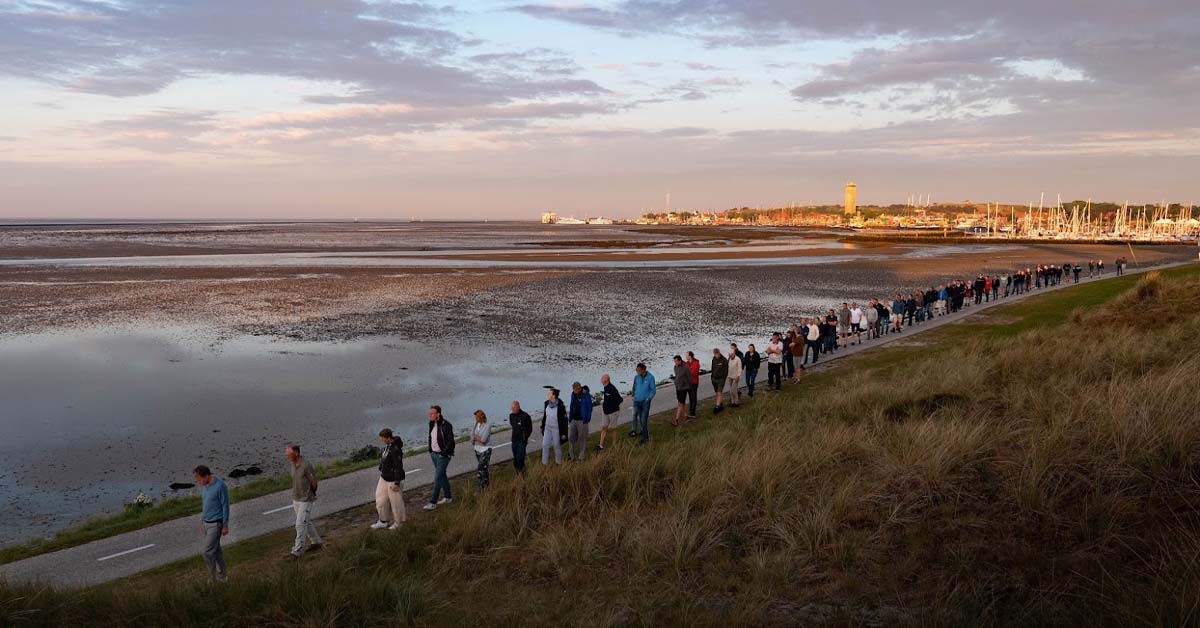
Dr Machteld de Kroon, TNO
We have really a huge challenge, a huge challenge in terms of maintenance of assets such as bridges and tunnels. We foresee that this challenge is going to cause an overload for our maintenance workers, and as a consequence, will also be a risk for the road network, so we really need to speed up and go ahead with this.
On top of that our main challenge is with sustainability meaning: how to maintain people’s ability to not only drive from A to B, but do it in a way that we can also save our climate. Further, in the Netherlands we will probably see huge impacts from the rise of the sea level. So in the lens of the Netherlands, it's even an even more concerning future with regard to climate change. So we brought together a group of people thinking about how to maintain the road infrastructure and how to do it in a sustainable way. We realised that each organisation has a specific position in the value chain but we do not understand each other’s position well enough.
In our early meetings someone came up with the idea that if we want to change our way of working together we need more intense discussions, we need at least five days for that. So that's why the idea for Infra 5-daagse arose.
"In our early meetings someone came up with the idea that if we want to change our way of working together we need more intense discussions, we need at least five days for that. So that's why the idea for Infra 5-daagse arose."
We thought that five days was optimal because first there will be misunderstandings before you can come up with a way of how to go ahead – to get to the bottom of this misunderstanding you need two days at least. This proved to be quite prophetic.
After two days of the workshop we had really been heading in quite a negative direction until we realised that this is not the way we have to go.
We were operating as a group of 80 people in one room, but we could also split into groups of 10 or 20 – we just would not have been able to do it on Zoom or Teams. We had special assignments in the group meetings. We could proceed or deepen discussions when we went to the bar or restaurant together. There we continued exchanging thoughts and even go deeper. So we didn’t stop asking questions and probing just because it was five o'clock. We kept the discussion going and kept trying to understand each other. You just can't do that in a digital way.
"After two days of the workshop we had really been heading in quite a negative direction until we realised that this is not the way we have to go."
The primary focus of the meeting was how to maintain infrastructure. Before we called it ‘replace and renovate’. But during the week we said that it is better to speak about ‘maintain’: we do not need to replace a structure if we can do a limited but appropriate repair and as such preserve the existing infrastructure: that is a much more sustainable solution.
This has a second advantage in that it is less of a workload because we expect that there's going to be a huge increase of bridges in need of repair. We have learned from COVID-19 about flattening the curve and we use this phrase for infrastructure too - we need to flatten the curve because otherwise the effort needed is too much to be able to handle it.
One topic that did come up, which we more or less expected but to a greater extent than I imagined, was the relationship between asset owner and the companies that are contracted to perform the work. It's always a discussion in the Netherlands. Asset owners bring conditions to the table. The contractors prepare a quote for that and then the best will win. However, there's quite a lot of lost or wasted efforts for the companies that put in the proposals if they do not win. There was a lot of discussion on how we could potentially change this situation because in a lot of ways it’s actually blocking innovation.
For me, it felt like the asset owners and contractors are so occupied with aligning on the contract conditions that there is no room anymore for input from research organisations. So for research organisations, like TNO, where there are many innovative ideas and technologies, it's hard to tap into the operation of the asset owners and contractors, which is needed to make a step in implementing these innovative ideas.
Something that has been an issue in the past but was certainly not the case during our five days, was the cooperative mindset of quite a lot of companies, that are normally competitors. Personally I especially appreciate the way companies tended to open up during those five days. Construction companies, engineering companies… they are aware that for us to achieve what we need to achieve it’s just too big a challenge for an individual firm. As a company, you can still have your own competitive advantage, but the fundamental innovations that are needed can only be achieved by joining forces. During the week on Terschelling all participants became more aware of the need for cooperation and are prepared to share more and more and that is a big step.
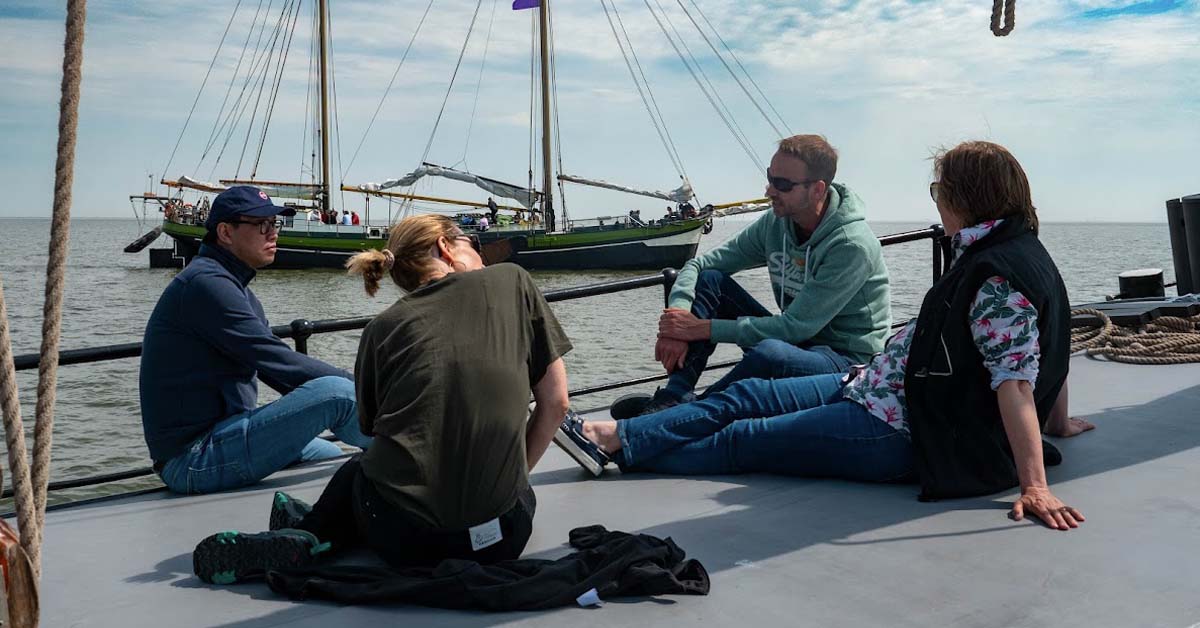
One of our first discussions was what is our main, collective goal? It’s to maintain, in a sustainable way, the infrastructure. But how are we going to measure that we are going forward and find out key performance indicators for that? One of the main results we achieved is that we have committed ourselves to go work together on this goal. It's this change of attitude that will change our behaviour – although it will be difficult to elaborate at this stage what the deliverables will be. However, you could say that it's something deeper than a deliverable. How you work together is a lot deeper than how you deliver a report.
I went to the meeting with an open mind, but I also wanted to better understand the issues of the different parties that were there. For a knowledge organisation it’s very important to understand the position of all companies and organisations that are of influence to determine whether we are going in the right direction. If we do not understand and appreciate their position, we can come up with all kinds of technical ideas, but these will never be implemented because they do not fit the way of working, the production process or do not comply with specific boundary conditions.
"For a knowledge organisation it’s very important to understand the position of all companies and organisations that are of influence to determine whether we are going in the right direction"
So understanding is one of the main goals I wanted to achieve. We come from different organisations, different companies, but we all share the same goal and the Terschelling experience will help a lot to improve the collaboration between these organisations in the future. It’s changed our relationships for the better. Which is a good and also necessary basis to proceed on the challenging road to a sustainable future for the infrastructure.
.png?h=400&iar=0&w=1400)
